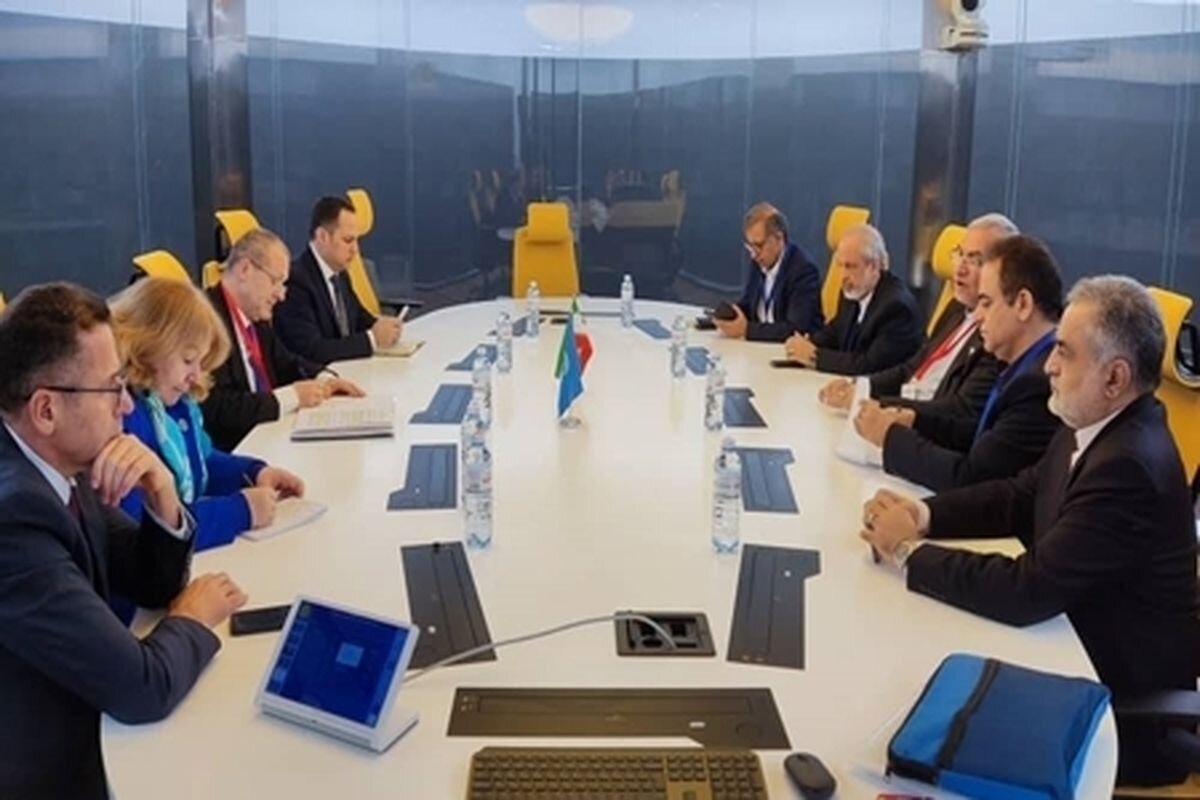WHO official calls Iran’s family physician program ‘valuable’

TEHRAN – The World Health Organization (WHO) regional director for Europe has referred to Iran’s family physician program as a valuable plan, calling member states to share experiences in this regard.
Hans Henri P. Kluge made the remarks in a meeting with Health Minister Bahram Einollahi on Friday on the sidelines of the seventh meeting of health ministries of member states of the Shanghai Cooperation Organization (SCO), IRIB reported.
Einollahi, for his part, said, “Currently, we are implementing the program carefully and we have provided good resources to support it.”
He went on to emphasize the key role of the family in this initiative, saying “Unlike many societies where the family has lost its main function, in our country, the family is the main center of education, socialization, and promotion of health.”
Emphasizing that prevention precedes treatment, the health minister expressed hope that the implementation of the program in Iran could serve as a model for other countries.
Iran highlights healthy lifestyle
On March 14, Einollahi called on member states of the Shanghai Cooperation Organization to boost collaboration by paying more attention to health and healthcare issues stressing that human health is the axis of development.
The minister urged the SCO member states to strengthen their collaboration on community health, mother and child health, antimicrobial resistance, healthy lifestyles, and mental health, as well as preventing and managing cardiovascular diseases and other non-communicable diseases.
Enhancing public health services, incorporating traditional medicine, fostering health tourism, compiling guidelines and clinical protocols, leveraging innovative technologies in healthcare, expanding the activities of the international medical associations in member states, and bolstering human resources, particularly young professionals, were among other areas suggested by Einollahi.
Adopting preventive measures to reduce the burden of diseases, addressing environmental factors affecting health, including the implementation of water and wastewater safety programs, and embracing new technologies, can lead to a strong collaborative effort to maintain and enhance health in member states of the SCO, he added.
He went on to highlight the importance of ensuring public access to safe drinking water, health services, and proper sewage systems as primary rights and essential human needs. “Today, scarcity of water resources and climate change have posed serious challenges to the sustainable provision of drinking water.”
Supplying the basic needs of people such as medicines and medical tools is one of the factors that result in the success of the member states of the SCO which has to be facilitated using member states' capacities.
“We are ready to share our knowledge, technology, and expertise to enhance health diplomacy among member states,” Einollahi noted.
SCO meeting
The 7th SCO meeting was held in Kazakhstan from March 12-15.
Environmental health and safety of drinking water were the main topics of the meeting, IRIB reported.
Health ministers of China, India, Kazakhstan, Kyrgyzstan, Russia, Pakistan, Tajikistan, and Uzbekistan, and the directors of the European Region of the World Health Organization were attending the meeting, as well.
In the seventh meeting of the health ministers of the member countries of the SCO, three documents were scheduled to be signed on promoting cooperation on safe drinking water, and sewage management, as well as adopting comprehensive policies and basic measures to improve healthcare in member states for 2025 to 2027.
MT/MG
